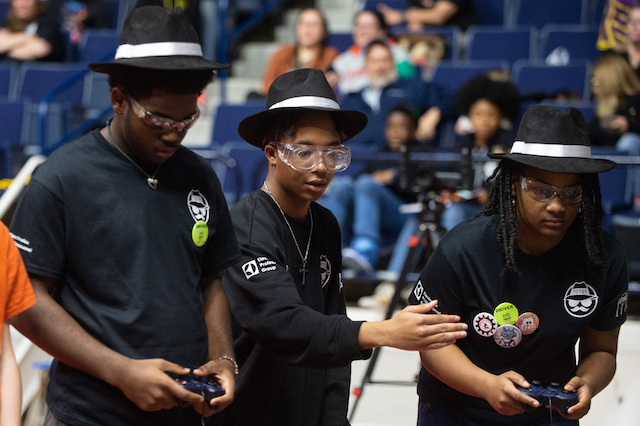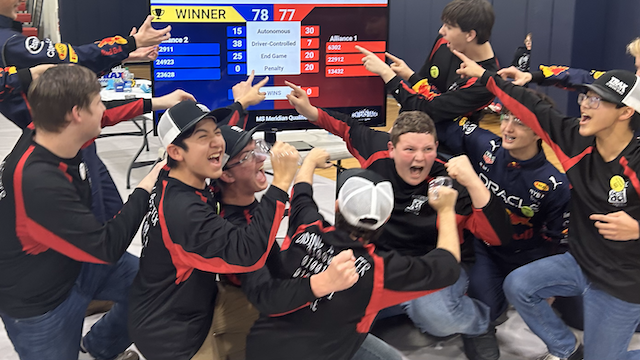- Guided by adult coaches and mentors, students develop STEM skills and practice engineering principles, while realizing the value of hard work, innovation, and working as a team. The robot kit is reusable from year-to-year and can be coded using a variety of levels of Java-based programming.

Teams design and build robots, raise funds, design and market their team brand, and
do community outreach to earn specific awards. Participants are eligible to apply for over $80M in college scholarships throughout the country.

 The Center for Mathematics and Science Education at the University of Mississippi is proud to be the program partner for the Mississippi FIRST®
The Center for Mathematics and Science Education at the University of Mississippi is proud to be the program partner for the Mississippi FIRST®